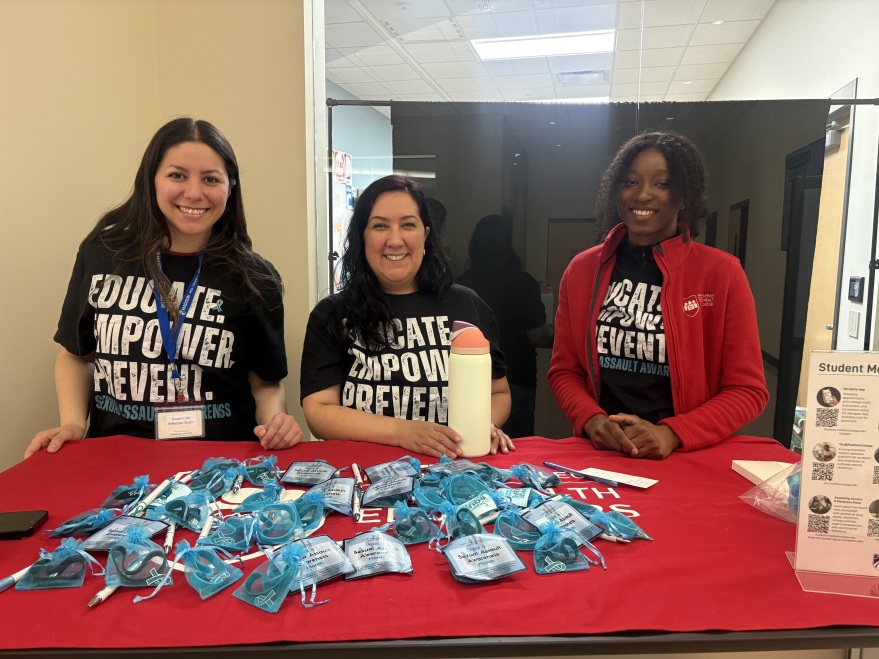Reality check ‘Straight Outta Compton’
September 16, 2015
When asked about how his group’s music glamorizes gangs, drugs, and violence, rapper Ice Cube replied with a reality check many people needed to hear: “Our art is a reflection of our reality.” He was in NWA, or Niggas wit Attitudes, a gangster rap group known as one of the most controversial groups in the world.
This reality is reflected in the retelling of NWA’s story in the movie “Straight Outta Compton,” which is a docudrama about five young men who rise up out of the violent streets of Compton and use their words and music to break free of the geographic and racial imprisonment they have faced since birth.
They are five young men who have nothing to lose but their lives, like the many fighters who have already passed. They ignore the hatred, brutality and racism seeping at them from a white privileged nation telling them they are nothing but drug-dealers and gangbangers.
It’s an #ALLLIVESMATTER approach of the masses who are afraid to accept that race exists, that change is needed, that it is truly #blacklivesmatter, since way before NWA had the opportunity to rhyme the unheard, raw truth of a people disabled and demonized by the white, heterosexual, male, kings of this nation.
In one scene, a cop aggressively shoves Ice Cube against the hood of a car in search of drugs he’s not carrying. In another, two police officers order the members of NWA to lay on the ground, under arrest, when they were simply eating lunch. Paul Giamatti, playing Jerry Heller, NWA’s manager, comes outside, furious and shocked. The ensuing argument ends with Heller shouting, “You cannot come and arrest these men because they are black!”
The two cops represent the brainwashed and “whitewashed” officers of our nation. This film is set in 1986 through 1995, and the habitual harassment by police and gang violence has only gotten worse. Police brutality – even with the incredible technological advancements of the increasingly militant ‘law enforcement – can still be disregarded and the officers walk away acquitted. In multiple scenes in the film, police brutality is implicit, showing it has been an issue for decades now.
“The fact that we live in a world where we have to remind ourselves that black lives matter is terrible,” Ice Cube said in a discussion hosted by Universal earlier last month. “We all have to check ourselves that we even have to remind each other that each other matter. I tell my kids ‘Make it home,’ and that’s all that matters.”
While many of us who have had the privilege of growing up in a relatively safe environment might see this film and be jarred by the scenes of violence, bashing, shooting, swearing and hard “gangsta” lyrics that brought street rap its credibility and fame, it’s important to take away that many are relatively immune to the reality of the people who live in places like Compton.
As one fan, Ebro Darden, of NWA said in a recent Apple podcast: “I was 12 years old when I found out about NWA, and the impact that that it made on me in knowing what was going on in other neighborhoods and people experiencing the same things that my cousins, my father, people were going through with police brutality was (huge). … We didn’t have the Internet, we didn’t know how to connect with other people from the hood, all we had was hip-hop. So when you heard people that look like you, sound like you, and are experiencing the same frustrations that you had, it felt comfortable.”
NWA fought against masses of people who tried to shut them down. They fought against the norms of the then-current music-industry, against the circumstances they were surrounded by. They fought against the greed associated with money and against division that comes with fame.
We see brothers with a dream turn into enemies with larger bullets, and then back to the original vision that inspired them. And if anything, that is what director F. Gary Gray wants the viewers to walk away with, to “be inspired” and know that if you want something, you must stick to it to find success, you must stick with it through the hurdles and obstacles and challenges.
This same message applies to our societal issues. If we want to put an end to the social injustices inherent in this community, if we want to start working towards a society that truly believes all of its lives matter, then we need to stick to it and believe in the humanity we each carry.






























